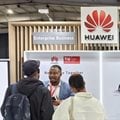





Processing this unsettled way of living takes its toll on the mind. Having to constantly reconsider our daily conduct is exhausting. The media is filled with little else than the latest statistics, a grim reminder of our own fragility. But this has become the defining moment of our lives. If anything, it has shown the extent to which we are dependent on each other. To be a family is to belong, regardless of blood relation. Each of us is in need of support and connection during this time. Progress through this crisis rests on empathy, solidarity, and determination.
This global event has compelled us to see others in a new light. In a period of extraordinary, even debilitating fear, the knee-jerk reaction may be to think only of ourselves. But measures forcing us into isolation reveal the need for respect and compassion. We will not get through this alone.
Ubuntu teaches us that we are because of others, that we are fundamentally interconnected. As Desmond Tutu once described: “It is to say, my humanity is caught up, is inextricably bound up, in yours. We belong in a bundle of life. We say a person is a person through other persons. It is not I think therefore I am. It says rather: I am human because I belong, I participate, and I share.”
It’s time for us to rebuild our communities – not just in our homes or nations, but globally. How often do we take the time to question the impact of our actions on a stranger living on the other side of the world? Now, we must. We are collectively experiencing this pandemic, but every individual is affected differently. Our diverging circumstances, largely across the lines of class and race, will determine who is impacted the most. To overcome this, we must learn to consider each other not just as people enduring a common event, but as a common family whose longevity is contingent on our value for one another.
Family is not only the people we grow up with, or the people we bond with. It’s the person on the street keeping their distance. The same respect we hold for our family must be afforded to the perfect stranger. Each behaviour we adopt is an act of love to protect and care for one another. It’s reaching out to the friends who have gone quiet, or providing the space for people to be heard without judgement. Kinship lies in coming together, even when apart.
To be a family is to participate. Some of us are demonstrating our commitment to each other through making masks or participating in food drives. Others have donated to the Solidarity Fund. Since its inception, thousands of individuals have donated over R50m – a recognition that growth lies in uplifting one another, and forgoing our differences. Executives of banks and businesses also committed to pay cuts, with some opting to support vulnerable staff or help provide equipment for healthcare workers. These acts of selflessness prove just how much we are capable of giving.
To be a family is to share. Although our borders may be closed, global cooperation is key to this fight. The sharing of information, resources, and supplies will be crucial to humanity’s success. Recently, 40 countries came together to pledge funds for equitable access to Covid-19 tools. The extraordinary bond between Irish citizens and Native Americans stands out. After tribes donated money to Ireland during the potato famine nearly 200 years ago, Irish people are now contributing to relief efforts for Navajo and Hopi communities in appreciation of their historic relationship. As WHO director general Tedros Adhanom Ghebreyesus stated: “The antidote to this virus is national unity and global solidarity. The antidote to this virus is the human spirit.”
But the actions we take today are not limited to this event. They have the potential to transform the way we structure our societies, the way we treat one another. We are all vulnerable because we are human, and we are human because we are vulnerable. How we act now is an acknowledgement of our commonality and interconnectedness. Our future is dependent on recognising ourselves as a community, a family, unbound by borders or boundaries. A person is a person through other people. We only survive together.